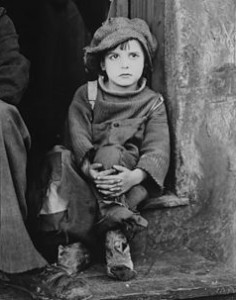
If there is any doubt about the failure of the sexual revolution of the sixties, Robert Putnam’s, Our Kids: The American Dream in Crisis (New York: Simon & Schuster, 2015) overwhelmingly puts such doubts to rest. He proves that dramatic changes in family structure are literally tearing America apart. The spread of premarital sex, the epidemic of divorce, and the rise of single-parent families have all had dire consequences on society and “our kids.”
There is much to like in Putnam’s Our Kids. The author of the landmark book, Bowling Alone, paints a very compelling picture of the crisis of the American Dream. His narrative is full of true stories of families and children, rich and poor, struggling and flourishing. The book is ironclad with studies to support his conclusions spiced with storytelling episodes.
His thesis is very clear: social ties matter. When a great diversity of ties exists, families prosper and flourish. When ties are weak or nonexistent, the family crashes and children suffer. This same principle of the need for ties holds for people of all races and income levels.
Putnam further believes that this difference in social ties is causing what he terms an opportunity gap in which many children are unable or pursue their American dream as they did in past generations.
Like Charles Murray in his book Coming Apart, which he curiously does not cite, Putnam sees a polarized America. On one hand, there is a college-educated, upper third of American society that is following “neo-traditional” marriage patterns. Through hard work and social engagement, many, but not all, of these families have managed to get ahead in a turbulent world. Putnam does well not to paint these individuals as villains but rather as the hardworking parents and children they are.
The picture of the other sector is not pretty. Many of the traditional ties that used to hold lower working-class families together have simply disintegrated. Putnam’s description of a modern underworld presents multipartnered and fatherless households, poor school performance, drug and gang cultures, sexual promiscuity and all sorts of destabilizing factors that cause shyness, aggression, anxiety, and depression in children.
One cannot help but be impressed by the sheer amount of scholarship Putnam employs to demonstrate the unraveling of the social fabric. Our Kids explores every aspect of childhood development from church membership to the family dinner. With graphs and charts, Putnam plots the nation’s decline in social involvement, especially after the sixties. The evidence is indisputable: the traditional family inside the context of a stable community is the best form for raising children. There really is no substitute.
Ironically, Putnam would probably dispute such a conclusion as simplistic. Indeed, fixing concrete modern day problems is complex and requires much thought and above all personal involvement. Fortunately, Putnam is not of the one-government-program-fixes-all school of social reformers.
However, after his brilliant exposition of the problem, his proposed solutions disappoint. After showing how “neo-traditional” marriage saved the upper sector from the devastation of the sixties and allowed it to prosper, he writes off the revival of marriage for the lower sector as improbable.
After showing how multiple partner households wreak havoc on the development of children, he does not seek to defy today’s permissive culture with the sure formula of marriage and family. Rather he sees promiscuity almost as an unchangeable given when he comments that, “It is almost surely too late to reestablish the once strong link between sex and marriage, even if that were desirable.”
If there is an opportunity gap, filling it must consist in extending to those who are  disadvantaged the same benefits of a family and community life enjoyed by those who are now making it in society.
disadvantaged the same benefits of a family and community life enjoyed by those who are now making it in society.
Instead of a much needed moral regeneration, sociological “solutions” are proffered: better schools, cash-supplements, pre-Kindergarten classes, and even more effective contraception. These fail to get to the heart of the matter.
“Our Kids” deserve better.
As seen on americanthinker.com


